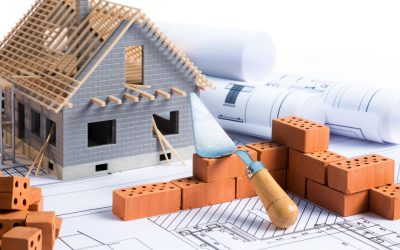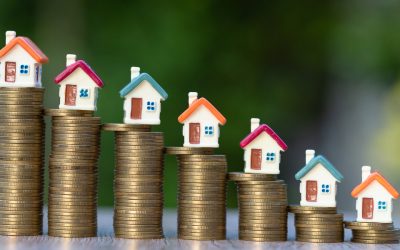Imagine this scenario: you’ve been the proud owner of a rental property for years, watching it grow and flourish under your care. But now, you find yourself wondering if you can take your involvement to the next level and actually live in your own rental property. Is it possible? Can you enjoy the benefits of being a landlord while also enjoying the comforts of your own home?
You can stay in your own rental property. As the owner, you have the right to live in the property if you choose to do so.
Let’s explore the various factors that come into play when deciding whether you can stay in your own rental property, from local laws and lease agreements to the potential benefits and drawbacks of such a choice.
Key Takeaways
- Familiarize yourself with local laws and your rights as a tenant before making any decisions about staying in your rental property.
- Evaluate your lifestyle needs and preferences, as well as the financial implications, before deciding whether to stay in your rental property.
- Consider the potential benefits of staying, such as generating additional income through co-living or taking advantage of tax advantages and deductions.
- Be aware of the drawbacks and challenges, such as violating mortgage agreements or facing financial risks and occupancy fraud, and seek expert advice before making any decisions.
Laws and Agreements
Understanding laws and agreements is crucial when considering the option of living in your own rental property. A tenant has certain rights that protect them from unfair treatment and ensure a safe living environment. Familiarizing yourself with these rights will help you navigate any legal implications that may arise.
One important aspect to consider is the lease agreement. This document outlines the terms and conditions of your tenancy, including your rights and responsibilities as a tenant. It’s important to carefully review and understand the lease agreement before signing it. This will help you avoid any misunderstandings or disputes with your landlord in the future.
Additionally, it’s essential to be aware of the local laws that govern rental properties in your area. These laws vary from place to place and cover a wide range of issues, such as eviction procedures, rent increases, and maintenance responsibilities. Understanding these laws will ensure that you’re well-informed and can assert your rights if necessary.
Failure to comply with local laws and lease agreements can have serious legal implications. It may result in eviction, fines, or even legal action against you. Therefore, it’s advisable to seek legal advice if you’re unsure about any aspect of your tenancy.
Personal Preferences and Lifestyle
Now that you have a solid understanding of local laws and lease agreements, it’s time to consider how your personal preferences and lifestyle come into play when deciding to stay in your rental property. Balancing priorities and understanding the financial implications are important factors to consider. Here are some key points to help guide your decision-making process:
- Evaluate your lifestyle needs and preferences: Consider your daily routine, hobbies, and activities. Does living in your rental property align with your lifestyle goals? Think about factors such as commute time, proximity to amenities, and access to recreational facilities.
- Financial implications: Staying in your rental property may have financial implications. Evaluate the cost of rent and compare it to the market value of other rental properties. Consider whether the rent fits within your budget and if it makes financial sense in the long run.
- Assess your personal preferences: Think about your living preferences and how they align with your rental property. Do you enjoy the freedom of making changes to the property? Are you comfortable with the responsibilities that come with being a landlord?
- Balancing priorities: Consider how staying in your rental property aligns with your other priorities. Do you value stability and staying in one place, or do you prefer the flexibility of moving to different locations?
Taking into account your personal preferences and lifestyle choices will help you make an informed decision about whether staying in your rental property is the right choice for you.
Potential Benefits of Staying in Your Rental Property
There are several potential benefits to consider when staying in your rental property.
One benefit is the financial implications of co-living. By renting out extra space in your property to live-in tenants, you can generate additional income that can help cover your rental costs or even leave you with extra cash each month. This can be especially beneficial if you’re looking to save money or pay off loans more quickly.
Another benefit is the ability to monitor and maintain the property closely. As the owner and occupant, you have the advantage of being able to oversee any repairs or maintenance that may be needed. This can help ensure that the property is well-maintained, which is important for long-term investment returns.
Additionally, staying in your rental property may provide potential tax advantages and deductions. You may be able to deduct certain expenses related to the property, such as repairs, property taxes, and mortgage interest, which can help lower your overall tax liability.
Drawbacks and Challenges of Staying in Your Rental Property
Living in your rental property can present several drawbacks and challenges that you should be aware of before making a decision. Here are some important points to consider:
- Legal implications: Living in a rental property may violate the terms of a buy-to-let mortgage, which is specifically designed for renting out the property. This can have severe consequences, such as being listed in the Rogue Landlords Database and facing demands from mortgage lenders for full loan repayment.
- Financial risks: Buy-to-let mortgages typically restrict personal residence until they’re paid off, which usually takes around 25 years. If you choose to live in a property financed with a buy-to-let mortgage, you may face financial repercussions, including occupancy fraud, which can affect your credit and reputation.
- Expert advice: It’s highly recommended to seek expert advice before making any decisions. Understanding the legal and financial implications of living in your rental property is crucial to avoid any potential pitfalls.
- Severe consequences: Living in a rental property financed with a buy-to-let mortgage can have long-term repercussions. It’s important to be aware of and fully understand the severe consequences that may arise from violating the terms of your mortgage agreement.
Considering these drawbacks and challenges will help you make an informed decision about whether or not to stay in your rental property. It’s essential to weigh the potential risks against the benefits before taking any action.
Considerations for Landlords Who Want to Live in Their Rental Property
If you’re a landlord considering living in your rental property, there are several important considerations to keep in mind. Firstly, it’s crucial to understand the financial implications of such a decision. Most buy-to-let mortgages are specifically designed for renting out the property, and living in it may violate the terms of the mortgage agreement. This can have serious consequences, including being listed on the Rogue Landlords Database and potentially facing legal action under the Fraud Act of 2006.
Additionally, buy-to-let mortgages typically restrict personal residence until the mortgage is fully paid off, which can take up to 25 years. Living in the property illegally can result in severe financial and legal repercussions, including full mortgage repayment and property repossession.
To navigate these complexities, it’s wise to seek expert advice. Consult with a trusted advisor or lender who can provide guidance tailored to your specific situation. They can help you understand the legal considerations and potential consequences of living in your rental property.
Frequently Asked Questions
Can I Live in a Rental Property I Own?
You can live in a rental property you own, but there are pros and cons to consider. It’s important to understand the potential financial and legal consequences, so consult experts and your lender before making a decision.
Is It Illegal to Live in Your Own Buy-To-Let Property?
Yes, you can legally live in a rental property you own. However, if it’s a buy-to-let property with a mortgage, living in it may be prohibited. Consult your lender for clarity.
Can I Manage a Rental Property Myself?
Yes, you can manage a rental property yourself. It involves tasks like finding tenants, collecting rent, and handling maintenance. However, if you prefer a hands-off approach, hiring a property manager can save you time and stress.
Can I Rent Out My Owned Property?
Yes, you can rent out your owned property. It offers benefits like extra income and potential tax deductions. To find tenants, advertise online, use rental listing websites, and consider hiring a property management company for assistance.
Conclusion
In conclusion, living in your own rental property can have various benefits such as:
- Lower interest rates
- Closer monitoring of the property
- The opportunity to build relationships with tenants
However, it’s important to consider the following factors before making this decision:
- Local laws and lease agreements
- Personal preferences
- Potential drawbacks and challenges
Consulting with your lender and understanding the legal and financial implications is crucial. Overall, weighing these factors will help landlords make an informed choice about living in their rental property.
- Finding Tenanted Properties for Sale in Your Area - October 26, 2024
- Understanding Your Rights When Selling Tenanted Property - October 26, 2024
- Is Now the Perfect Time to Invest in Rental Property? - October 25, 2024


